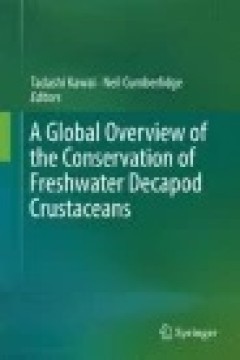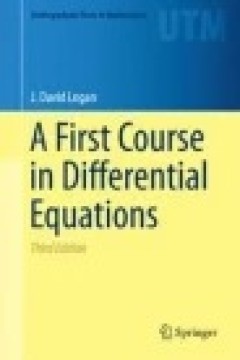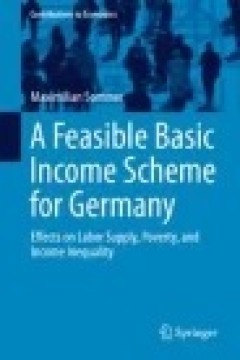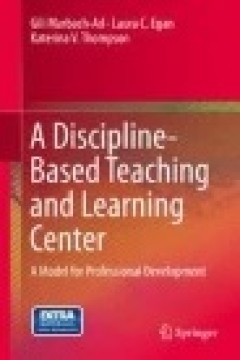Filter by

PID Controller Tuning Using the Magnitude Optimum Criterion
This monograph presents explicit PID tuning rules for linear control loops regardless of process complexity. It shows the reader how such loops achieve zero steady-position, velocity, and acceleration errors and are thus able to track fast reference signals. The theoretical development takes place in the frequency domain by introducing a general-transfer-function-known process model and by expl…
- Edition
- -
- ISBN/ISSN
- 978-3-319-07263-0
- Collation
- xx, 296 halaman
- Series Title
- -
- Call Number
- 621.316 PAP p

PCM-Enhanced Building Components : An Application of Phase Change Materials i…
Presenting an overview of the use of Phase Change Materials (PCMs) within buildings, this book discusses the performance of PCM-enhanced building envelopes. It reviews the most common PCMs suitable for building applications, and discusses PCM encapsulation and packaging methods. In addition to this, it examines a range of PCM-enhanced building products in the process of development as well as e…
- Edition
- -
- ISBN/ISSN
- 978-3-319-14286-9
- Collation
- xv, 271 halaman
- Series Title
- Engineering Materials and Processes
- Call Number
- 690 KOS p

A Global Overview of the Conservation of Freshwater Decapod Crustaceans
This book introduces updated information on conservation issues, providing an overview of what is needed to advance the global conservation of freshwater decapods such as freshwater crabs, crayfish, and shrimps. Biodiversity loss in general is highest in organisms that depend on intact freshwater habitats, because freshwater ecosystems worldwide are suffering intense threats from multiple s…
- Edition
- -
- ISBN/ISSN
- 978-3-319-42527-6
- Collation
- -
- Series Title
- -
- Call Number
- 333.72 GLO g

A Global Kinetic Model for Electron Radiation Belt Formation and Evolution
This thesis focuses on the construction and application of an electron radiation belt kinetic model including various adiabatic and non-adiabatic processes. The terrestrial radiation belt was discovered over 50 years ago and has received a resurgence of interest in recent years. The main drivers of radiation belt research are the fundamental science questions surrounding its complex and dramati…
- Edition
- -
- ISBN/ISSN
- 978-3-662-46651-3
- Collation
- -
- Series Title
- Springer Theses
- Call Number
- 531 SUZ g

A Girl's Education: Schooling and the Formation of Gender, Identities and Fut…
This book argues that educators and the general public have become complacent about girls’ education as a consequence of the more recent fuss about problems for boys. After an analysis of persistent disquiet about girls’ lifestyles, it uses theories of gender and education to demonstrate that girls are being produced in contradictory ways in current schooling. Many girls develop a sense o…
- Edition
- -
- ISBN/ISSN
- 978-1-137-52487-4
- Collation
- -
- Series Title
- Palgrave Studies in Gender and Education
- Call Number
- 301 GIL g

A Fixed-Point Farrago
This text provides an introduction to some of the best-known fixed-point theorems, with an emphasis on their interactions with topics in analysis. The level of exposition increases gradually throughout the book, building from a basic requirement of undergraduate proficiency to graduate-level sophistication. Appendices provide an introduction to (or refresher on) some of the prerequisite materi…
- Edition
- -
- ISBN/ISSN
- 978-3-319-27978-7
- Collation
- -
- Series Title
- Universitext
- Call Number
- 518 SHA f

A First Course in Differential Equations
The third edition of this concise, popular textbook on elementary differential equations gives instructors an alternative to the many voluminous texts on the market. It presents a thorough treatment of the standard topics in an accessible, easy-to-read, format. The overarching perspective of the text conveys that differential equations are about applications. This book illuminates the mathemati…
- Edition
- Ed. 3
- ISBN/ISSN
- 978-3-319-17852-3
- Collation
- -
- Series Title
- Undergraduate Texts in Mathematics
- Call Number
- 511 LOG f

A Finite Element Primer for Beginners: The Basics
The purpose of this primer is to provide the basics of the Finite Element Method, primarily illustrated through a classical model problem, linearized elasticity. The topics covered are: (1) Weighted residual methods and Galerkin approximations, (2) A model problem for one-dimensional linear elastostatics, (3) Weak formulations in one dimension, (4) Minimum principles in one dimensio…
- Edition
- Ed. 1
- ISBN/ISSN
- 978-3-319-09036-8
- Collation
- -
- Series Title
- SpringerBriefs in Applied Sciences and Technology
- Call Number
- 511 ZOH f

A Feasible Basic Income Scheme for Germany: Effects on Labor Supply, Poverty,…
This book analyzes the consequences that would arise if Germany’s means-tested unemployment benefits were replaced with an unconditional basic income. The basic income scheme introduced is based on a negative income tax and calibrated to be both financially feasible and compatible with current constitutional legislation. Using data from the German Socio-Economic Panel (GSOEP) the author exami…
- Edition
- Ed. 1
- ISBN/ISSN
- 978-3-319-24064-0
- Collation
- -
- Series Title
- Contributions to Economics
- Call Number
- 338.5 SOM f

A Discipline-Based Teaching and Learning Center: A Model for Professional Dev…
This book describes the design and implementation of a discipline-specific model of professional development: the disciplinary Teaching and Learning Center (TLC). TLC was born from a strong commitment to improving undergraduate science education through supporting the front-line educators who play an essential role in this mission. The TLC’s comprehensive approach encompasses consultation, se…
- Edition
- Ed. 1
- ISBN/ISSN
- 978-3-319-01652-8
- Collation
- -
- Series Title
- -
- Call Number
- 507 MAR d
 Computer Science, Information & General Works
Computer Science, Information & General Works  Philosophy & Psychology
Philosophy & Psychology  Religion
Religion  Social Sciences
Social Sciences  Language
Language  Pure Science
Pure Science  Applied Sciences
Applied Sciences  Art & Recreation
Art & Recreation  Literature
Literature  History & Geography
History & Geography